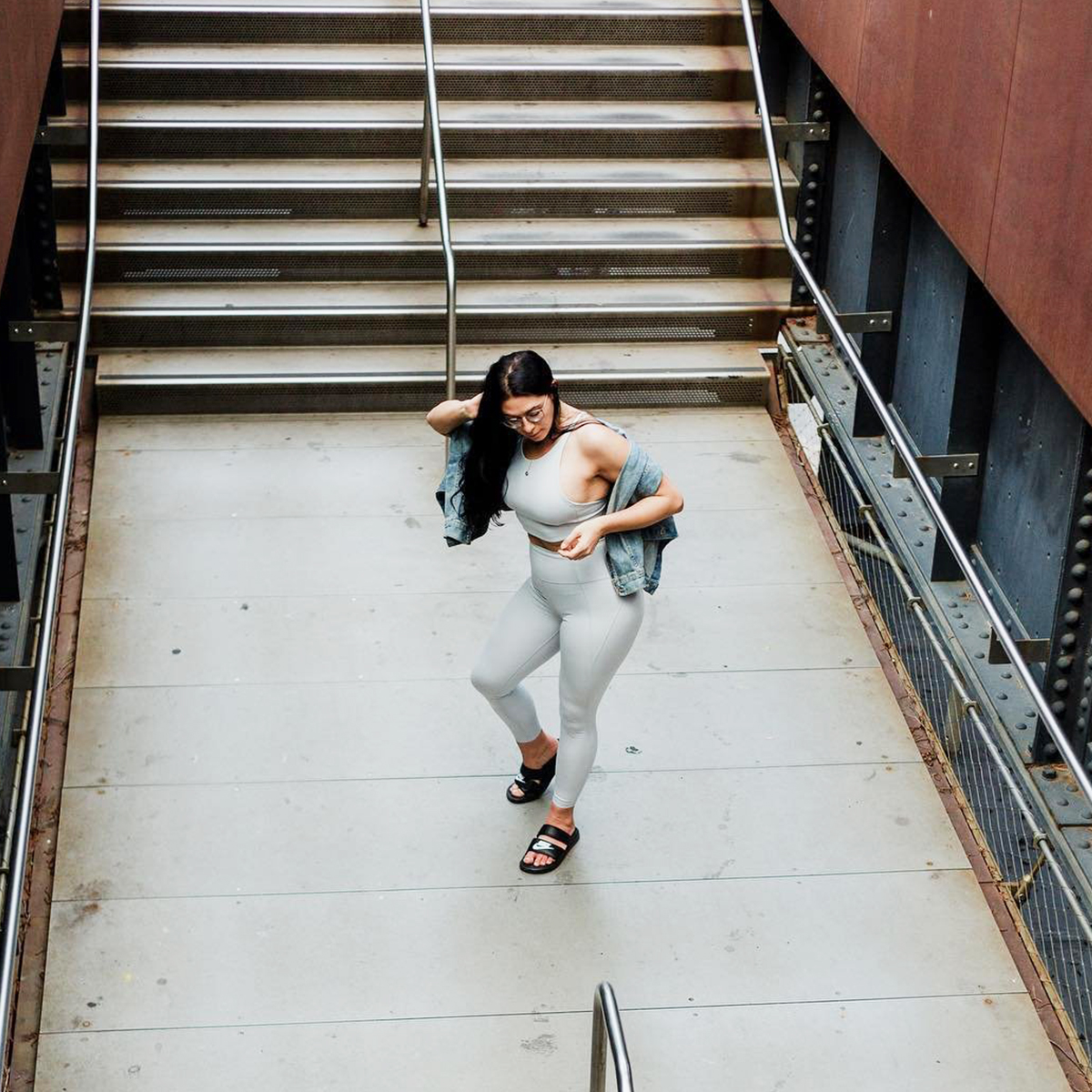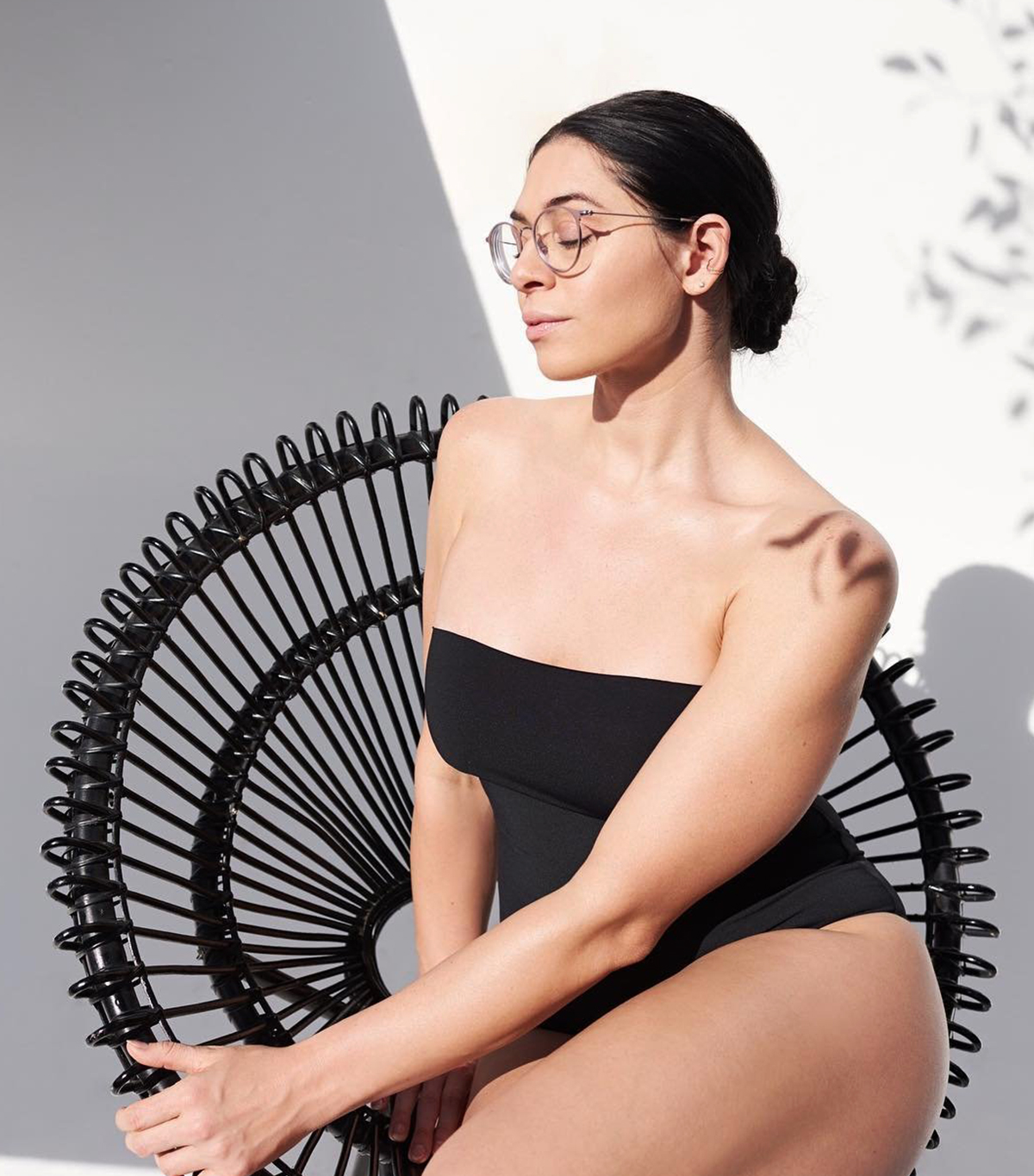Why I Decided to Stop Making So Many Rules for Myself
Claire Fountain—celebrity yoga teacher, personal trainer, and wellness expert—founded #TrillYoga with her unorthodox approach to breaking stigmas and stereotypes in the yoga and wellness space. After getting into yoga for depression and anxiety, she has always been a mental health advocate beyond all her fitness endeavors. She also has an e-book series called Built and Bendy that promotes strength training, flexibility, mindfulness, and positivity-led health goals.

Over the years, I've amassed a series of self-imposed rules. The irony is that I've never been good at following rules, but even so, I'd crafted narratives about how life should be and how I should behave within it; the internal dialogue many of us structure in a way to help us navigate living. But what happens when this dialogue makes us feel more confined than we know we should be?
My internal set of rules went from things I deemed healthy and necessary for fitness to how I viewed myself and the world around me. In college, I recall thinking I had to do it all or my life would fall apart. I often felt if I didn't do everything on my "wellness plan" or if I ate too much of this or that or forgot my workouts, my entire life as I knew it would slowly dissolve into some state of chaos (much like the days of my eating disorder). I recall the anxiety it gave me to think about skipping things or deviating from my plans that felt safe.
Sure, they kept me "safe," but they also kept me scared. Let's toss in "anxious" and "unhappy," too. All too often I hear stories from my clients and audience about how much time they spend thinking about which food option is best, acceptable, the most in-line with whatever health rules they have heard and thus believed were gospel. Or which options were "bad" and thus would send them into a space of guilt or even shame for some with previous convictions about themselves. I feel so much of what I'm asked about in these questions, as I was that person as a young adult. I also know now that since trendy diets are often restriction in disguise, the ability to become obsessed, rigid, and controlled by outward substances or practices in the name of health is all too common.
As a health and wellness professional, I find it's easy to speak of that space being wrought with maladaptive habits that sound nice, helpful, healthy, and even virtuous on their face. However, many of the rules I had constructed were around what I was taught about women and the oftentimes negative lens through which I viewed myself. I'd ultimately have to give up stale ways of thinking about myself and women: how we move, how we behave, what we do and don't do, what we do and don't accept.
In that same view, those rules (which were really fears and unhealed parts of myself) led to judgments of others and nasty narratives that did nothing to empower any of us; the least of which myself. This was more challenging than facing shady health rituals or eating whatever I wanted. This was an entire change of thought—questioning my own beliefs and where they came from as well as creating new schemas that served truth and not societal perception.
So there I was, a slave to rules that prevented me from enjoying life and subjected me to constant judgment. I was so very tired of it all. I got too tired to care anymore and in not caring, something magical happened: Slowly but surely, I came into my own.

I wrote down what I was doing, what I wanted to be doing, and what I thought about both options. I took deep dives into why I felt the way I did, why I acted the way I did, and what was keeping me from living the easy life I knew existed on the other side of internal conversation. I wrote about how it felt to care and what fears arose from not caring.
Oftentimes, I worked with a therapist who was able to support me and guide me through some of the deeper messaging I had developed through trauma and experience that was counterintuitive to me living the life I truly wanted or developing into the woman I knew I could be.
My journey was not without challenge nor consequence. I even wonder if I'm taking this being laid-back a little too far and can't be bothered to do much of anything sometimes. There have also been overcorrections that later taught me we cannot exist in bubbles that forget how the rest of the world still navigates, judges, and criticizes by their own societal and personal perceptions. Giving up rules around what other people thought of me had to happen as well.
I learned that true balance in life is knowing that everything should come in moderation—even moderation. Balance also comes from being aware. Awareness started to set me free, but not quite as much as letting go of all my rules and misplaced care, self-destructive self-talk, and finally transcending the shame that was beneath why those rules felt so necessary.
So this month, as we share stories of the habits we're quitting, I challenge you to quit the things that make your life less enjoyable. To look past foods, practices, or other material things to something that will have a longer, more profound effect on your life as a whole. I challenge you to quit certain ways of thinking or being that make you feel small or keep you living a life that does not feel free or truly empowered.
Healing is a daily habit. I won't tell you my process is the simple way out. It's not for the faint of heart, but I have faith we can all reengineer our thoughts with work and practice, for it is from how we think and believe that determines so much of how we end up feeling about life and ourselves.
Next up: A psychologist explains the easiest way to break a bad habit.
This article is provided for informational purposes only and is not intended to be used in the place of advice of your physician or other medical professionals. You should always consult with your doctor or healthcare provider first with any health-related questions.